how to get your life back together
postcard 59: getting over burnout—ways i'm trying to get my life back together & habits i'm trying to re-adopt (summer glow up...ish)
You’ve been having an out-of-body experience for the last four months. Your mind is a dimly lit home at night, and you’re standing outside under a flickering streetlamp, watching someone who looks like you walking through the rooms. The curtains are always open and you’re eternally the sole spectator, the only one who made it to the ticket office. In other words, you’ve been waiting for your life to piece itself back together again for the whole winter season. Chalk it up to seasonal depression or a series of unfortunate events, maybe. It’s an exploration of liminal hallways that seem to have no end to the twists and turns, an exercise in patience—which you do not have an abundance of to start with. In this metaphor, the never ending corridors are made of wax, and they’ve all started fusing together, and melting down by a series of bad events completely out of your control, which is incredibly difficult to admit as someone who plans your entire life down to the minute. The point is, you’ve pretty much been split into tiny fragments of tempered glass, and have been trying your best to find all of them to piece back together again.
The search for every shard of my life that I can sit down and work out like a thousand-piece puzzle set has had one objective for the past two weeks: find that perfect day. My terrible perfectionist tendencies result in my need to execute everything perfectly or not even trying at all—and no day has been perfect—so I’ve been watching the ticking needle of my patience, trying to catch myself on the day I fix my life. I have an idea of what a perfect day would look like; everyone has one, but every day I wake up, there’s something wrong with it. The sun might be out, but I might be feeling too tired; I might be feeling fine, but the sun might not be out; the sun might not be out, and I might be feeling too tired, and so on. Moreover, my attempts to self medicate and ignore the big fault lines of my life with simply wasting away my free time, just waiting for the minutes to tick by.
With every day bleeding into the next, my mind working through day to day tasks on autopilot, I’ve realized that most of the days this year have no discernible characteristics from the next. It’s to the point where I’ll open up my journal, and see that each entry has almost sounded identical for the last three weeks. Fatigue about being fatigued has started to seep into my daily life, and I’m tired of being tired. Although it is the second day of summer, I’ve decided to do some spring cleaning in my life; as always, I’ve decided to take things into my own hands and write out a list of how I can get my life back together again. I’m impatient but I do believe that improvements to your life does not happen from big, radical changes, but small habits you implement that build up over time.
None of these are original thoughts or super groundbreaking, but I’ve already been feeling monumentally better after doing all of these steps (I always do). I also don’t have any ‘don’t be hard on yourself!’ steps because 1) I am genuinely my own worst critic and nothing can really stop me from being hard on myself, and 2) I wanted to include steps that are less conceptual and rather practical measures you can incorporate into your life. But also, don’t be so hard on yourself.
[side note: this post is a little tangent & introduction for my how to get my life back together series — my next post, ‘on keeping a notebook’, will be posted on thursday. i’m talking about my notebook ecosystem, from my journal to my reading journals, to my various planners. all the posts in this series will be for paid subscribers, so please consider upgrading your subscription if you enjoy this!]
you can check out my first post (it’s free!) here:
how to get your life back together…ish:
get off your phone and go on a walk
In the haze of productivity and trying to stay connected with the world, it is easy to forget the joy and magic of a simple walk.
I wrote a whole essay on this in December, but sometimes it’s embarrassingly easy just how fast a walk will cure you of your worries. I also feel like I’ve talked about taking walks so much that posting about it again feels incredibly redundant, but here I go again: a good walk will genuinely change your life. There is something about the act of walking that quiets down all the extraneous murmurs in your brain, and everything suddenly morphs into clear cut clarity. It’s not a miracle cure, but it sometimes is the only thing that works and allows you to see your life at a distance. You can’t see the full panoramic view of a meandering river if you are sitting closely on its banks.
Why does walking feel like the best prescription to any sort of distress? It grounds you in a physical way, I think, feeling your feet literally touching the pavement with every beat of your heart. In that moment, you become something bigger, a part of every sprawling nature landscape. Something in your life that felt so overwhelming suddenly feels small in comparison to the sheer magnitude of the world around you. And in the open solitude, the frequency of your thoughts begin to change, and something that didn’t make sense, the gray areas clouding your head, presents itself with an answer in startling technicolor.
closing shift for a clean space
This is kind of my number one, no negotiation rule to getting my life together. Whenever my life feels like it’s starting to spiral out of control, I realize that my surroundings have too more often than not—books get piled on my desk, articles of clothing end up on the floor, and tiny trinkets somehow find its way under my blanket. Not to mention my allergies get horrifically worse when my space is not clean because dust accumulates so easily.
I like to do something I call a ‘closing shift’ (I did not make this up), where I put on some music and spend half an hour before I sleep cleaning my space and putting objects back in its designated, organized place. I also declutter my digital documents and photos often, placing them into folders that I can easily find and access. Usually, though, the closing shift does not involve any sort of electronics, so it’s a good way to avoid blue light right before I sleep. Doing this every day or once every two days prevents me from having to do a massive, taxing clean on the weekends that takes up three hours and then a subsequent three hour nap. Keeping a clean space also mirrors my mental state and keeps my mind organized as well.
make a list of things in your control vs out of your control
This is one of the things that has massively helped my mental health. As aforementioned, I’ve been going through the wringer for the last few months, and a lot of it has been because of things completely out of my control. However, while I know this subconsciously, it is so hard to think that something is out of your control when it is happening to you. Suddenly, external circumstances, things happening to you, don’t feel like that—it feels like you somehow caused it to happen. When I told this to my close friend, she advised me to consistently make a list of things that are in my control, and things that are not. Her point was that seeing everything on paper not only makes everything feel tangible and thus less like a scary ghost slamming doors in your house, it also allows you to redirect your energy and focus onto things that you can fix, that you can control.
I feel like this has somehow lessened my anxiety, seeing all of my worries and problems neatly split into two binary columns because more often than not, my problems are out of my control. And for the ones within my control, writing it on paper makes it feel a lot less scary.
wishlists for everything
I don’t mean this solely in a retail therapy sense, but I like making wishlists of things I want to read and watch. Wishlists excite me, and calling book to-read lists or movie watchlists a wishlist makes me have something to look forward to. Sometimes, changing the way I see something that is so normal and banal in my life can significantly change my mood. Wishlists also saves time on mindlessly scrolling through streaming platforms or staring at my bookshelf to find my next read. I also like making wishlists based on specific books or movies—for example, when I finished watching Aftersun, one of my favorite movies, I researched and made a list of specific movies that capture a similar theme and summer melancholy to the movie.
In a retail sense, however, I find that making wishlists instead of buying on the spot allows me to visualize everything I want from a distance or sometimes the sheer volume of everything I want shocks me into not buying anything, thus, helping me save money. This summer, reading and watch wise, I am planning on making my way down my NYRB classics read-wishlist and my Criterion Collection movie wishlist. I talk about the reason for doing this in my how to get smart again post.
create habits, not routines
I’m someone who loves a solid morning and night routine because I like consistency. Thinking of a routine as a constellation of habits is much easier than a dreary timetable list of activities that must be executed every day, rinse and repeat. Habits are intentional actions that you want to incorporate into your daily life and a group of them create a routine, but visualizing your day as a series of habits makes it feel less formidable and offers a sort of flexibility. This way, it’s easy to adjust or switch out certain habits while having the same objective or goal the entire time. I like having a set of habits that I can autopilot myself on without thinking much in the morning (because I can’t function properly for the first hour after I wake up). By the time I’m awake, I’ll have accomplished a small litany of tasks that already sets me up for the potential of having a good day.
I talk a lot about habits in the post linked below, but to elaborate, I usually divide my habits into morning habits and night habits because those are the hours that are mine. Morning habits include: making my bed, stretching / yoga, drinking lots of water, journaling, reading, a 30 minute workout or a 5k run, and skincare in that order. Night habits include: planning the next day, closing shift, big light off by 10pm, reading for an hour, phone off by 11pm, skincare, sleep by midnight.
[I do want to digress a little bit and talk about the aestheticization of habits, and I’m particularly talking about the that girl routine (the one where you get up and drink lemon water, put on a baby pink workout set to follow a 10 minute ab workout Youtube video, fill out a page of the Five Minute Journal, eat a slice of avocado toast with a matcha latte, and then do a Drunk Elephant skincare routine). It’s not that different from what habits I like to do, but I think a lot of times, routines, especially in the way the social media does it, has places the spotlight on the products used. Routines become a hyper-aestheticized vessel, reduced to something that has to have a brand or tag to achieve its ‘ideal form’. Don’t fall into this trap! Routines are simply a collection of habits. You don’t need to buy anything new to enact this.]
exercises in optimism
I’m not good at this at all. I’m someone who finds comfort in expecting the worst in every situation because I feel like it cushions the blow; if I expect and prepare for the worst without even hoping for the best, then a good outcome will serve as a nice surprise. Should there be a bad outcome, I will have already built a fortress around me, made out of anticipatory grief and sadness. I honestly did not know this was not normal—I thought that this was how everyone processed sadness, by overplaying a hypothetical scenario in their heads like a broken record, by pressing down all eighty eight keys of a piano until a note seemed in tune with the potential and inevitable melancholy that would follow.
However! I have been worrying that constantly expecting the worst propagates some kind of self confirmation bias about my life in general (and I will be cursed forever and ever). I’ve been trying to expect good outcomes, to tell myself that there is more of a chance of a good outcome than a bad outcome. Historically, most things I have been hyper-anxious about has somehow worked out in my favor, and the other shoe I always expect to drop never does. My mom always tells me to force myself to laugh (literally, like a crazy person) whenever I’m feeling sad, because even simulated laughter can release endorphins. In the same vein, I’m assuming just forcing myself to be optimistic will somehow do the same. Either way, I’m trying to get rid of my stubborn habit of always expecting the worst to happen.
journal everything
I will live and die by my journals. My journals are a way of archiving my thoughts at that time, but also useful for processing them. I have a bad habit of intellectualizing and rationalizing every single thought or thing that happens to me, so much so that I’m always hyperaware of my every thought. I also repress emotions as the first line of defense (because I sometimes think my emotions get in the way of being productive—not in a toxic productivity way, but a ‘I need to get this done by a deadline for my job’ way).
Journaling for me, is a remedy for that. Every day after I wake up, I grab my journal and I write a long stream of consciousness of everything that is going on in my head. I feel like this helps me empty it for the day, so my brain feels less full. Even if I rationalize and examine every thought in my head, writing it down on paper makes it feel less abstract and more concrete. This allows me to just write it out and stop thinking about it—in essence, I am trying to trap all of my worries in my journals, like a metaphorical cage.
make a big to do list at the start of each month
Those who follow my journal prompts know this, but my prompt for every Sunday includes writing weekly intentions and making a big to do list. I usually make a big one at the start of each month and then dedicate a few tasks each week so it feels doable. I name it: my “get my shit together to-do list: ____ month edition”. Oftentimes, these are just one page long and a huge list of obligations and chores I need to figure out by the end of the month, from job related tasks to bills to things for friends and family to miscellaneous things I need to figure out, or even just updating my Goodreads. Anything, no matter how big or small, gets thrown on that list because I refuse to forget a single thing I have to do.
finish easy tasks on the spot
Easy tasks build up to become your personal Everest. I try not to let this happen by adopting a ten minute rule: if I can do something in ten minutes, I do it at that moment. I know that it’s usually called the ‘two minute rule’, but most things usually take more than two minutes, and I started doing the ten minute rule when I used to study using the Pomodoro method in school—instead of 25 minutes of work and a five minute break, I would do an hour of work and take a ten minute break. During those ten minutes, I did mindless chores, such as decluttering, folding laundry, answering simple emails, deleting duplicate photos or screenshots I no longer need, etcetera. It is so much easier to do one easy task in ten minutes of free time rather than setting an hour or two to do all of this, because it becomes exhausting when it builds up.
take yourself on solo dates. especially to the movie theater.
I always feel like my life is falling apart whenever I don’t have time to think for myself, or whenever I haven’t had the chance to recharge my social battery. I like having a weekend day to myself once a month at least, where I go out and roam around a park or a mall and eat at a new restaurant that I’ve had my eye on (on this note, I think that learning how to eat alone is one of the best things you can do in your twenties because it sheds a lot of self consciousness and I personally think it’s the final step to truly appreciating your own presence). The last stop on my solo date is always the movie theater. I love watching movies alone, but in the company of strangers, so I don’t feel lonely.
I am also a strong believer in the claim that movies, like books, are best enjoyed alone.


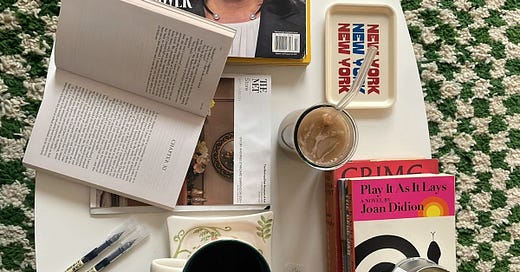




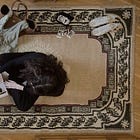

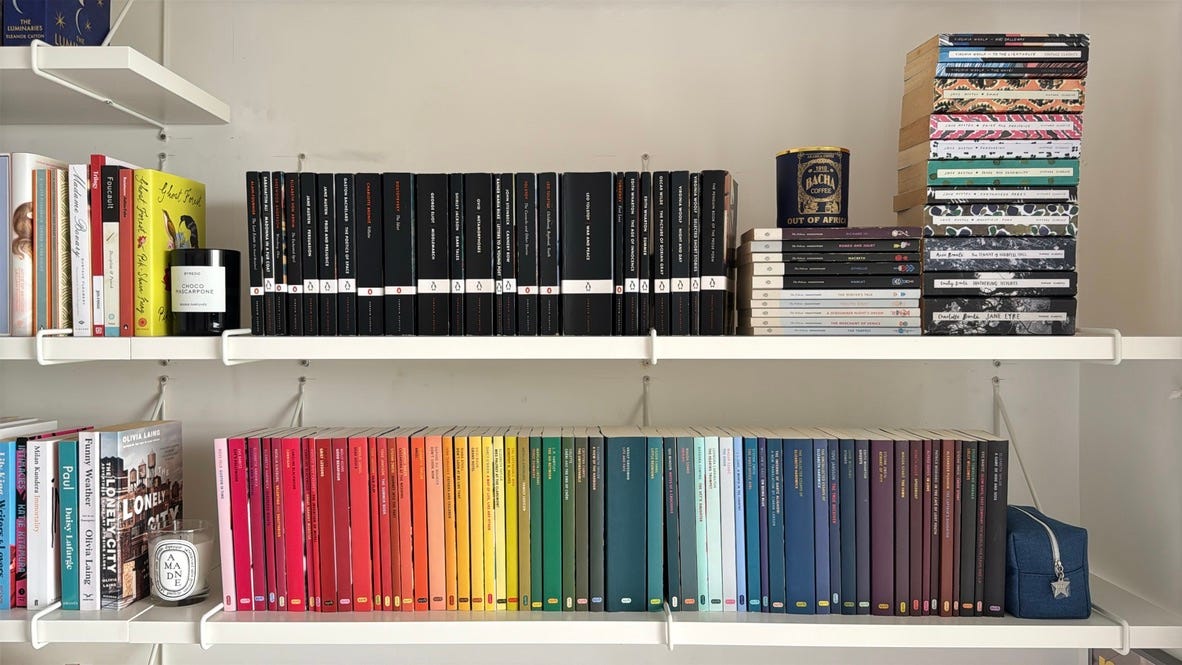


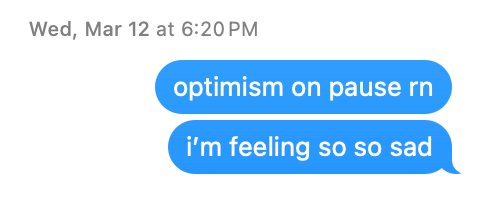

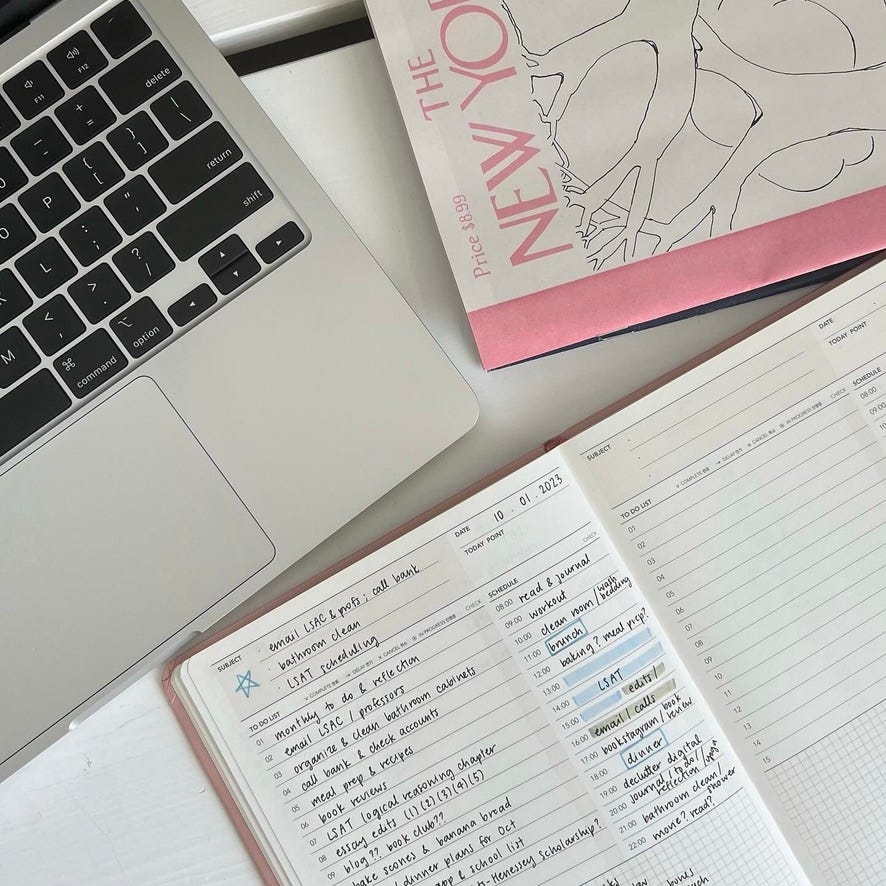

Bookshelf tour?👀
This first paragraph was definitely a personal attack... but I continued regardless.